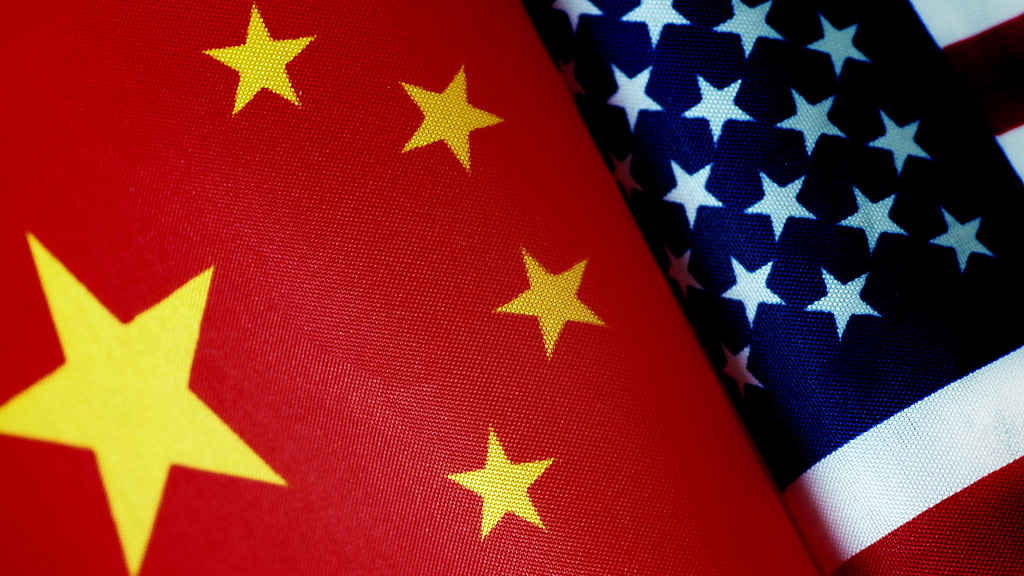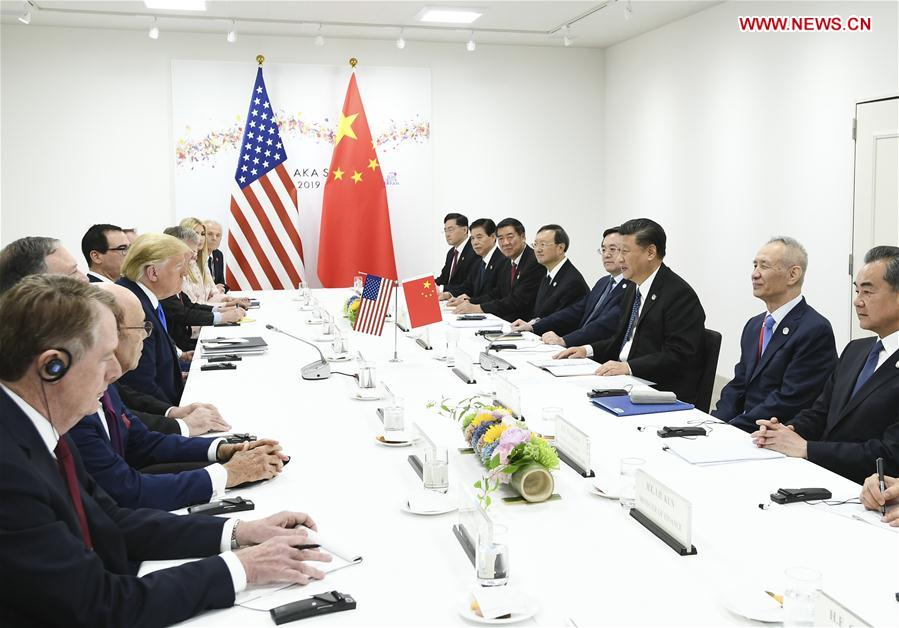

Editor's note: The article was first published by Xinhua News on June 29, 2019. The article does not necessarily reflect the views of CGTN.
The outcomes of the highly anticipated meeting between Chinese President Xi Jinping and his U.S. counterpart, Donald Trump, on the sidelines of the Group of 20 (G20) Osaka summit in Japan on Saturday have shone a ray of light upon the clouded global economy.
At their gathering, the two leaders agreed to restart economic and trade consultations between the two countries on the basis of equality and mutual respect. They have also agreed that the U.S. side will not add new tariffs on Chinese exports.
The decision to reboot the trade talks means that the efforts to resolve the trade differences between the two countries are back onto the right track.
It has been widely acknowledged that a more stable China-U.S. relationship is good not only for China and the U.S., but also for the wider world.
China and the U.S. do share some differences, and Beijing hopes to solve these differences in their consultations. More sincerity and action are needed in that process.
As the world's top two economies, China and the U.S. both benefit from cooperation and lose in confrontation. And it is always the right choice for the two sides to settle their differences through dialogues, not confrontation.
The relationship between China and the U.S. has at present been facing some difficulties. Neither side can benefit from such a troubled situation.
Since the two countries set up their diplomatic ties 40 years ago, China and the U.S. have jointly fostered their cooperation in a mutually beneficial fashion.
As a result, two-way trade has made almost unbelievable strides, growing from less than 2.5 billion U.S. dollars in 1979 to over 630 billion last year. And the fact that more than 14,000 people cross the Pacific every day offers a glimpse into just how intensive the interactions and exchanges are between the two peoples.
Therefore, as China and the U.S. enjoy highly integrated interests and extensive cooperation areas, they should not fall into so-called traps of conflict and confrontation.

Chinese President Xi Jinping meets with U.S. President Donald Trump in Osaka, Japan, June 29, 2019. /Xinhua Photo
When the two presidents met each other at last year's G20 summit in Argentina's capital city of Buenos Aires, they reached an important consensus to pause the trade confrontation and resume talks. Since then, negotiating teams on both sides have held seven rounds of consultations in search for an early settlement.
However, China's utmost sincerity demonstrated over the months seems to have only prompted some trade hawks in Washington to push their luck.
Now that the two sides have picked up their trade talks, they need to proceed by treating each other on an equal footing and showing due respect, which is a condition to the final settlement of their divergence.
Apart from that, actions are also needed.
Few would disagree that fixing the China-U.S. trade problem needs wisdom and practical actions at each and every key turn along the path leading toward the final settlement. If the U.S. side delivers no action that highlights the spirit of equality and mutual respect, and asks too much, the hard-won restart will produce no results.
For China, it will always walk its own path and realize a better self-development in spite of the outcomes of the trade talks.
At the just concluded G20 summit, Xi put forward a set of new opening-up measures, sending a strong signal that China will keep up with its steps of reforms.
As the two sides are entering a new phase of their trade negotiations, it is hoped that China and the U.S. can join hands in actively communicating with each other and properly handling their differences.
It is also hoped that Washington can work with Beijing to build a China-U.S. relationship featuring coordination, cooperation and stability, so as to better benefit the two peoples, and people of other countries as well.
(If you want to contribute and have specific expertise, please contact us at opinions@cgtn.com.)

Copyright © 2018 CGTN. Beijing ICP prepared NO.16065310-3
Copyright © 2018 CGTN. Beijing ICP prepared NO.16065310-3